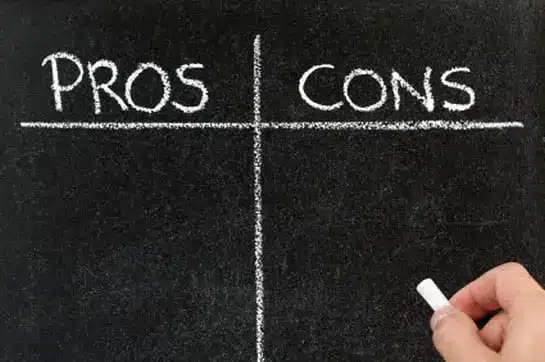Anxiety is a pervasive mental health issue affecting millions of people worldwide. While it is a natural stress response, chronic anxiety can significantly impair one’s quality of life. Two primary approaches to treating anxiety are conventional medication and herbal remedies. Each has its advantages and disadvantages, and the choice between the two often depends on individual preferences, medical history, and the severity of the condition. This article aims to comprehensively compare these two treatment options, covering aspects like effectiveness, safety, cost, and personalization. By the end of this article, you’ll be better equipped to make an informed decision about your anxiety treatment.
Contents
Understanding Anxiety

What is Anxiety?
Anxiety is a mental health condition characterized by excessive worry, fear, or apprehension. It comes in various forms, including Generalized Anxiety Disorder (GAD), Social Anxiety Disorder, and Panic Disorder. Understanding the type of anxiety one is experiencing is crucial for selecting the most effective treatment. While some people experience situational anxiety, such as nervousness before an exam, others may suffer from chronic anxiety that interferes with daily activities.
Symptoms and Diagnosis
Common anxiety symptoms include restlessness, difficulty concentrating, irritability, and sleep disturbances. Physical symptoms like rapid heartbeat, sweating, and trembling can also occur. Diagnosis typically involves a thorough evaluation by a healthcare provider, who may use standardized questionnaires or tests. It’s essential to consult a medical professional for an accurate diagnosis, as anxiety symptoms often mimic other medical conditions.
Conventional Medication For Anxiety

Types of Medication
Conventional medication for treating anxiety usually falls into categories like Selective Serotonin Reuptake Inhibitors (SSRIs), Benzodiazepines, and others. SSRIs like Prozac and Zoloft are often the first line of treatment and are generally used for long-term management. Benzodiazepines like Xanax provide quick relief but are generally not recommended for long-term treatment due to the potential for dependency.
How They Work
These medications primarily work by altering the levels of neurotransmitters in the brain. For example, SSRIs increase serotonin levels, a neurotransmitter associated with feelings of well-being and happiness. Benzodiazepines, on the other hand, act on the GABA receptors in the brain, producing a calming effect. It’s crucial to understand that while these medications can be highly effective, they do not cure anxiety but rather manage its symptoms.
Herbal Remedies For Anxiety

Common Herbal Remedies
Herbal remedies have been used for centuries to treat various ailments, including anxiety. Some of the most commonly used herbs for anxiety include Valerian root, Lavender, and Chamomile. These herbs are usually available in various forms, such as teas, tinctures, and capsules. Unlike conventional medication, herbal remedies often have fewer side effects, making them an attractive option for many.
How They Work
The active compounds in these herbs interact with the central nervous system to produce a calming effect. For example, Valerian root contains valerenic acid, which has been shown to interact with GABA receptors, much like Benzodiazepines. However, the mechanisms of most herbal remedies are not as well-understood as those of conventional medications. While some studies and anecdotal evidence suggest that these herbs can be effective, more research is needed to establish their efficacy conclusively.
Comparing Safety Profiles

Medication Safety
Conventional medications for anxiety, while effective, come with a range of potential side effects. These can include drowsiness, weight gain, and even dependency, particularly in the case of Benzodiazepines. Long-term use of these medications may also lead to other health issues like liver damage. Therefore, it’s crucial to consult a healthcare provider for regular monitoring when using these medications for an extended period.
Herbal Safety
Herbal remedies are often considered safer than conventional medications because they are natural. However, “natural” does not always mean “safe.” Some herbs can interact with other medications you may be taking or exacerbate pre-existing medical conditions. For instance, Valerian root is generally not recommended for pregnant or breastfeeding women. As with conventional medications, it’s essential to consult a healthcare provider for a personalized safety assessment.
Accessibility And Cost

Cost of Medication
The cost of conventional medication can be a significant factor in treatment choices. While insurance may cover some of these costs, not everyone can access comprehensive healthcare. Moreover, the high price of some medications can make them inaccessible for people without insurance or those living in regions where such medications are not readily available.
Cost of Herbal Remedies
Herbal remedies are generally more affordable and accessible than prescription medications. They are widely available in health food stores and online, often without prescription. However, it’s worth noting that not all herbal products are created equal. The lack of regulation means that the quality can vary, so purchasing from reputable sources is crucial.
Personalization Of Treatment

Individual Differences
The effectiveness of both conventional medication and herbal remedies can vary from person to person. Factors like age, overall health, the severity of anxiety, and even genetic makeup can influence how well a treatment works. This makes it essential for individuals to work closely with healthcare providers to find the most effective and safest treatment for their specific needs.
Consultation with Healthcare Providers
Regardless of your treatment option, consultation with a healthcare provider is crucial. They can provide a personalized treatment plan considering your medical history, current medications, and other relevant factors. This personalized approach ensures that you receive the most effective treatment with the least risk of adverse effects.
Making An Informed Decision

Weighing the Pros and Cons
Choosing between medication and herbal remedies for treating anxiety involves weighing the pros and cons of each option. Conventional medication offers quick and often potent relief but has potential side effects and costs. Herbal remedies provide a more natural approach with fewer side effects but may not be as immediately effective. The choice often boils down to personal preferences, lifestyle, and the severity of the condition.
Seeking Professional Advice
The importance of consulting a healthcare provider cannot be overstated. They can offer expert advice tailored to your specific condition and needs. Whether you’re leaning towards medication, herbal remedies, or a combination, a healthcare provider can help you make an informed decision prioritizing your well-being.
The Bottom Line
Anxiety is a complex condition that can significantly impact one’s quality of life. While both conventional medication and herbal remedies offer treatment avenues, each has advantages and disadvantages. The choice between the two is highly personal and should be made in consultation with a healthcare provider. As our understanding of anxiety and its treatments continues to evolve, individuals must stay informed and proactive in managing their health. By weighing your options carefully and seeking professional advice, you can make an empowered decision in your journey towards better mental health.


